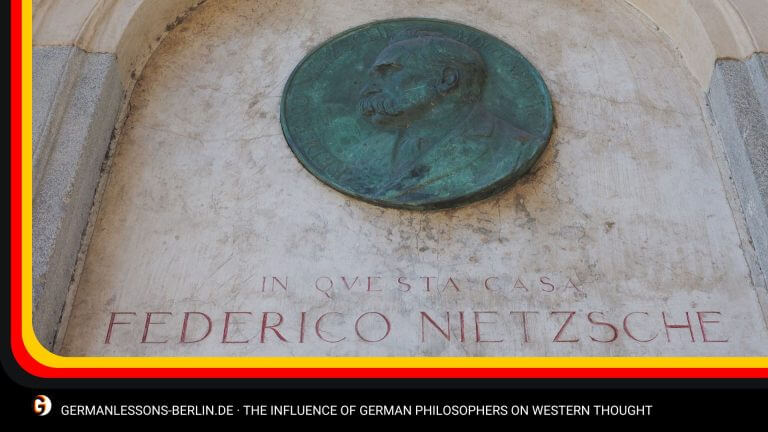Table of Contents
You’re about to embark on a riveting journey through the compelling world of German cinema. From early pioneers to modern maestros, you’ll explore the impact of iconic German films and directors. You’ll see how their unique voices have shaped not only European cinema, but Hollywood as well. So, sit back, relax, and let’s dive into the rich tapestry of storytelling that’s made German cinema a global powerhouse.
Key Takeaways
- German Expressionism in the early 20th century, through filmmakers like Fritz Lang and F.W. Murnau, defined the unique language of German film and influenced genres such as film noir, horror, and science fiction.
- The New Objectivity Movement emerged as a response to German Expressionism, focusing on realistic, sober depictions of everyday life and breaking away from traditional storytelling structures.
- Post-war German cinema, particularly the New German Cinema in the 1960s and 70s, redefined cinematic storytelling by exploring personal stories, social critiques, and historical reflections with greater introspection and character development.
- Rainer Werner Fassbinder revolutionized German cinema with his socially critical and psychologically insightful films, tackling controversial topics and inspiring future filmmakers. His boldness and determination left a lasting imprint on German cinema and shaped film history.
- Contemporary German cinema, represented by directors like Fatih Akin, Florian Henckel von Donnersmarck, and Maren Ade, continues to reshape narrative styles and significantly influence global filmmaking. These films serve as social commentary, push boundaries, and reflect societal changes and challenges.
The Birth of German Cinema: Early Pioneers
While you might’ve seen countless German films, it’s crucial to delve into how it all began with the early pioneers of German cinema. In the early 20th century, passionate filmmakers like Fritz Lang and F.W. Murnau were busy defining what would become the unique language of German film. Their groundbreaking work in silent films like “Metropolis” and “Nosferatu” set the tone for the cinematic art form, introducing innovative techniques and gritty themes that still resonate today. They didn’t just make movies; they crafted visual narratives that challenged viewers, pushed boundaries, and set the stage for the future of global cinema. So, next time you’re engrossed in a German film, remember these pioneers who started it all.
German Expressionism: Influential Films and Their Legacy
Let’s now turn our attention to German Expressionism, a pivotal movement in the world of cinema. You’ve likely seen its impact in many iconic films, even if you didn’t realize their roots. We’ll explore these influential works and the lasting legacy they’ve left on the global film industry.
Defining German Expressionism
You’re about to dive into the unique world of German Expressionism, an influential movement that’s left an enduring legacy on cinema worldwide. Emerging in the early 20th century, German Expressionism is characterized by its focus on the emotional and psychological experiences of characters, often conveyed through distorted and exaggerated visuals. It’s a rebellion against realism, preferring to express inner realities rather than the external world. Films like ‘The Cabinet of Dr. Caligari’ and ‘Metropolis’ are classic examples, showcasing elements like stark lighting, angular designs, and complex narratives. Their intensity and innovation have made them seminal works in the history of film. Now, let’s delve into the legacy of these influential films and their impact on cinema.
Legacy of Influential Films
In this section, you’ll discover the profound legacy that German Expressionist films have had on the global cinematic landscape. These films, unique in their use of exaggerated aesthetics and psychological depth, have left an indelible mark on cinema.
- Influence on Film Noir: German Expressionism’s high-contrast lighting and skewed camera angles significantly influenced the Film Noir genre, giving it its distinctive look.
- Inspiration for Horror and Sci-fi: The unsettling visuals and psychological depth of German Expressionist cinema laid the groundwork for both the horror and science fiction genres.
- Innovation in Cinematography: These films’ innovative use of camera angles, shadows, and set design has been widely adopted, transforming the way movies are made.
Next, we’ll delve into the New Objectivity movement in German cinema.
The New Objectivity Movement in German Cinema
Beneath the surface of German Cinema, you’ll find the New Objectivity Movement, a significant era that redefined the art of filmmaking. Emerging in the 1920s, this movement was a response to the emotional intensity of German Expressionism. It instead favored a more realistic, sober depiction of the world. Filmmakers like F.W. Murnau and Fritz Lang were key players, creating films that mirrored society, free of romantic illusions or exaggerated drama. They focused on the details and harsh realities of everyday life, making the ordinary extraordinary through their lens. This movement significantly influenced global cinema and set the stage for what was to come. Now, let’s venture into the next chapter: ‘post-war cinema in Germany: a new wave’.
Post-War Cinema in Germany: A New Wave
After the war, you’ll find that German cinema took a dramatic turn, and a new wave of filmmakers stepped up to redefine what German cinema could be. This period, often referred to as “New German Cinema,” was marked by a distinct shift in themes, style, and narrative.
- Themes: Post-war German films began to focus on personal stories, social critiques, and historical reflections. These topics resonated with audiences who were grappling with their recent history.
- Style: Filmmakers experimented with unconventional styles, breaking away from the classic narrative structure.
- Narrative: The storytelling became more complex and introspective, allowing for greater character development and exploration of moral dilemmas.
As we navigate further into Germany’s cinematic history, let’s delve into ‘the importance of Fassbinder: a revolutionary filmmaker’.
The Importance of Fassbinder: A Revolutionary Filmmaker
You’ll explore the works of Fassbinder and grasp how he revolutionized German cinema, carving out a distinct and influential niche. His films, often characterized by social critique and psychological insight, pushed boundaries and opened new avenues for expression. Fassbinder’s exploration of societal issues, such as race, gender, and class, through a unique cinematic lens challenged the status quo, making him a truly revolutionary filmmaker. His grit, determination, and boldness in tackling controversial topics have left a lasting imprint on German cinema, inspiring numerous filmmakers. Recognizing Fassbinder’s significant role in the cinematic landscape, you’ll understand how his groundbreaking approach has shaped the course of film history. Now, let’s delve deeper into ‘contemporary German cinema: influential directors and their works’.
Contemporary German Cinema: Influential Directors and Their Works
Now, let’s turn our attention to the modern landscape of German cinema, focusing on influential directors and their impactful works. You’ll discover how these filmmakers have shaped and continue to influence the cinematic world. We’ll explore their unique styles, narratives and the impacts they’ve had both domestically and internationally.
Influential German Directors
Within the realm of contemporary German cinema, you’ll encounter numerous influential directors who’ve left an indelible mark on the industry with their innovative works. They’ve been shaping the world of cinema and influencing viewers globally.
Here are three such directors:
- Fatih Akin: Known for his poignant narratives, Akin’s films often tackle themes of migration and multiculturalism. His film “Head-On” won the Golden Bear at Berlinale.
- Florian Henckel von Donnersmarck: He shot to fame for “The Lives of Others,” a film that offers a gripping insight into the Stasi-era East Germany.
- Maren Ade: Her film “Toni Erdmann,” a compelling family drama, received critical acclaim and was nominated for the Best Foreign Language Film at the Oscars.
Their storytelling prowess continues to inspire and captivate audiences.
Impactful Contemporary Works
While you’re exploring the landscape of contemporary German cinema, it’s impossible to overlook the impactful works of directors like Fatih Akin, Maren Ade, and Florian Henckel von Donnersmarck. These directors have not only reshaped the narrative styles but also significantly influenced global filmmaking.
| Director | Notable Work |
|---|---|
| Fatih Akin | “Head-On” |
| Maren Ade | “Toni Erdmann” |
| Florian Henckel von Donnersmarck | “The Lives of Others” |
Each of these films broke new ground, offering fresh perspectives in storytelling and provoking deep emotional responses. Much more than just entertainment, they’ve served as social commentary, reflecting and challenging societal norms. As we delve deeper into the role of German films in the international cinema, you’ll see how these contemporary works continue to echo worldwide.
The Role of German Films in the International Cinema
You’ve probably encountered hundreds of movies, but have you ever considered the significant role that German films play in international cinema? Germany’s cinema has not only dominated Europe but has also left an indelible mark on the global film industry.
- German Expressionism: Pioneered in the 1920s, it greatly influenced Hollywood’s film noir and horror genres.
- New German Cinema: This movement in the 1960s and 70s brought us visionaries like Werner Herzog and Wim Wenders, redefining cinematic storytelling.
- Contemporary German Films: Today’s filmmakers continue to push boundaries, tackling taboo subjects and exploring the human condition.
Assessing the Impact of German Cinema on Hollywood
In assessing the impact of German cinema on Hollywood, you’ll uncover a rich history of innovation and influence, but it’s the sense of revolution in narrative and visual aesthetics that truly stands out. The German Expressionist movement, for example, greatly impacted Hollywood’s approach to visual storytelling, with its dramatic shadows and distorted sets. Likewise, the suspenseful storytelling techniques of German filmmakers have been adopted by many Hollywood directors. Films such as Fritz Lang’s Metropolis have influenced numerous American sci-fi movies, demonstrating the lasting impact of German cinema. With this understanding, you can appreciate the intricate, interconnected web of global cinema. Now, let’s turn our focus to the future perspectives: the evolution of German cinema.
Future Perspectives: The Evolution of German Cinema
As you gaze ahead, it’s clear that someone’s creativity and daring will continue to fuel the evolution of German cinema, and its influence will only grow stronger. You can expect to see a surge in global recognition, experimental storytelling, and an increase in collaborations with international filmmakers.
- Global Recognition: As a film enthusiast, anticipate more German films gaining international acclaim, making their mark at renowned film festivals.
- Experimental Storytelling: You’ll see German cinema pushing boundaries, embracing unusual narratives and innovative techniques that challenge traditional storytelling.
- International Collaborations: Expect more partnerships between German and international filmmakers, diversifying the cinematic landscape and broadening its influence.
In essence, the future of German cinema is a thrilling prospect, promising a dynamic blend of creativity, daring, and global impact.
Frequently Asked Questions
What Are the Various Awards and Recognitions That German Cinema Has Received Worldwide?
You’re asking about the global awards and recognitions that German cinema has garnered. They’ve made significant strides, with films like “The Lives of Others” winning the 2006 Academy Award for Best Foreign Language Film. Werner Herzog, a prolific German director, has received numerous international accolades. German cinema’s impact is also recognized in festivals around the world, including the prestigious Cannes and Berlin International Film Festivals.
Who Are Some of the Most Famous German Actors in Hollywood?
You’re asking about renowned German actors in Hollywood. There’s quite a few! Christoph Waltz, for instance, has won two Oscars. Then there’s Diane Kruger, who’s made a significant impact. Michael Fassbender, although born in Germany, was raised in Ireland, but he’s a big name too. Let’s not forget about Thomas Kretschmann and Franka Potente who’ve also made their mark. These are just some of the German talents gracing Hollywood screens.
How Has the German Government Supported the Film Industry in Germany?
You’re curious about how the German government supports their film industry, right? Well, they’ve set up the German Federal Film Fund (DFFF), which provides financial aid for film production. They’re big on promoting German culture and language through cinema. Not only that, they also boost international co-productions. So, they’re really investing in making sure German cinema gets the recognition and support it deserves.
What Is the Commercial Viability and Market Share of German Films Globally?
You’re asking about the global commercial viability and market share of German films. Well, they’ve carved out a significant niche. Though they don’t dominate like Hollywood, German films are often critically acclaimed and commercially successful. They’ve got a decent market share in Europe, and a growing presence in international film festivals. So while they aren’t the top dogs, they’re definitely players in the global cinema game. The German film industry’s got both commercial viability and a solid global standing.
How Do German Cinema Schools and Film Education Contribute to the Country’s Film Industry?
You’re interested in how German film schools contribute to the country’s cinema? They’re pivotal! They’re nurturing creative minds, teaching technical skills, and fostering innovative storytelling. They’re producing talents who’re making waves not just domestically, but globally. They’re shaping the future of German cinema, ensuring its growth and continuous evolution. This education is the backbone of the industry, driving its commercial viability and enhancing Germany’s cinematic imprint on the global stage.
Conclusion
You’ve journeyed through the rich history of German cinema, from its early pioneers to its contemporary powerhouses. You’ve seen its influence on Hollywood and international cinema, and relished in the unique artistry of directors like Fassbinder. With its ongoing evolution, German cinema will undoubtedly continue to leave its mark on the world. So, keep your eyes peeled for the next wave of German films—they’re sure to be ground-breaking!




